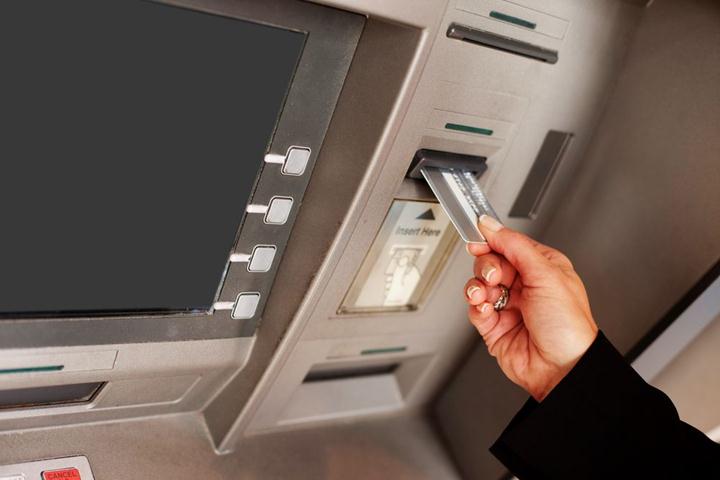If your business is closely watching the tight bottom line, then you will be happy to know that there are free business checking accounts out there, whether you would prefer banking online or at the real brick-and-mortar branch within your area.
However, to find a Business Checking Account, you might have to do some digging because free business checking is common at smaller credit unions and banks than at any of the country’s biggest banks. In addition, there are few free small-business checking account options with online banks. Also, even if you do not find free business checking options, your bank might waive the monthly fees if you continually maintain a certain minimum balance in your account or even meet other criteria.
Free business checking at the big banks
Big banks like Wells Fargo and Chase, with their huge networks of ATMs and branches, are seductively convenient. These banks offer a wide range of services which means that larger companies can also keep all their business in a single spot. Online banking resources and tools are typically polished as well.
As earlier mentioned above, a free business checking account is not an option at the country’s biggest banks. You might also find it difficult to build any meaningful banking relationship at bigger banks.
You should also note that there are ways to avoid paying the monthly fees other than maintaining the minimum balance. For example, Wells Fargo’s business checking account also waives the fee in case you make over 10 purchases using your business debit card or set up the payroll transactions with your account.

Source: hcu
Free business checking account at credit unions and local banks
Smaller credit unions and local banks are likely to have more free business checking options as compared to larger banks. You might also find lower account minimums and flexible allowances for cash deposits and transactions.
Another potential benefit for keeping your businesses local is the unique ability to build a personal relationship with your preferred bank. Facetime might humanize you as well as your business, reminding your bank that you’re more than your actual account balance. This comes in particularly handy in case you ever have banking problems. It might also boost your chances of getting the much-needed loan required to grow your business.
Of course, there are few downsides that result from staying local. Some small banks do not offer the range of services and products that their larger competitors have. You might also find less-polished online tools and you will not have the convenience of using ATM networks with national reach.
Free online business checking
Online banks are open at all times which is a wonderful convenience for the small-business owners. Lack of overhead usually means lower fees and you may even be capable of finding business checking accounts online that earn interest.
The main disadvantage with online banks for your business will be that you are not allowed to deposit money at all times. In case your smaller business conducts several cash transactions, you will certainly have to use the traditional bank within your area. ATM access might also be a big issue. As such, ensure that your bank either allows a fee-free access to the national network or waives ATM fees.

Source: business.kaspersky
One of the best free business checking online options is No Bull Checking Option from SmallBusinessBank.com. The SBB is basically an offshoot of the Gardner Bank that’s based in Kansas City. Just like most other banks offering free business checking accounts, SBB does not charge the monthly maintenance fees or call for a minimum balance so as to avoid them.
What to look for in an online business checking account
Always remember to evaluate the business checking accounts in the perspective of your own business. If you are a business who conducts all your business online, then your needs shall be extremely different from those businesses with a lot of cash deposits and dozen employees. Here are the factors that you should look for in business checking accounts:
1. Ability to waive the fees
If your bank normally charges monthly maintenance fees, they might waive it if you always maintain a certain minimum balance in your bank account. However, the balance might have to be substantial, especially at bigger banks.
2. Access to ATMs
In case easy access to the ATMs is a major priority, you will want to focus on the bigger banks that have extensive ATM networks. On the other hand, some banks online will reimburse the ATM fees. However, this might just be an extra step that you would rather not take.
3. Cash deposit limits
Many online banks do not allow any cash deposits and other online banks will limit these types of deposits. For example, you might only be capable of depositing up to 10,000 dollars in cash per every statement cycle without having to incur any fees. Credit unions usually have looser limits and they might be a better bet for the cash-heavy businesses.
4. Transaction limits
Business checking accounts are usually subject to a cap on the number of transactions that you can conduct monthly. Limits mostly range between 100 and 500 transactions. When you exceed the limit, you will have to pay a fee on every additional transaction.
5. Potential for positive banking relationships
If you are hoping to develop your smaller business, then consider how your bank will be helpful. Smaller business loans can be particularly hard to get and forming a good relationship with the bank so that they view your business as being more than just a number could ease the process. Such relationships will probably demand person-to-person facetime for you to have better chances of getting at a credit union or smaller community bank.
6. Ability to undertake online banking
Even though it’s quite easy to assume that you will be capable of performing basic transactions online, credit unions and smaller local banks may not offer the free online banking option. Furthermore, usability of the online tools may vary widely, with online banks and bigger banks typically offering better and more user-friendly tools.

Source: os-history
Free business checking account exists in many forms
While you will find most of the free business checking accounts options locally, there’s also a handful that exist online. Furthermore, you can swing free business checking account with the bigger banks provided you meet all their requirements for fee waivers, often by maintaining a certain minimum balance.
If you are a sole proprietor with a small business, you might simply want to make use of the regular personal online business checking account for your business purposes. It is much easier for you to avoid most fees with a personal account. In addition, some banks provide sub accounts that usually make it easier to keep all your business’ funds separate.
Featured Image: waynebank


